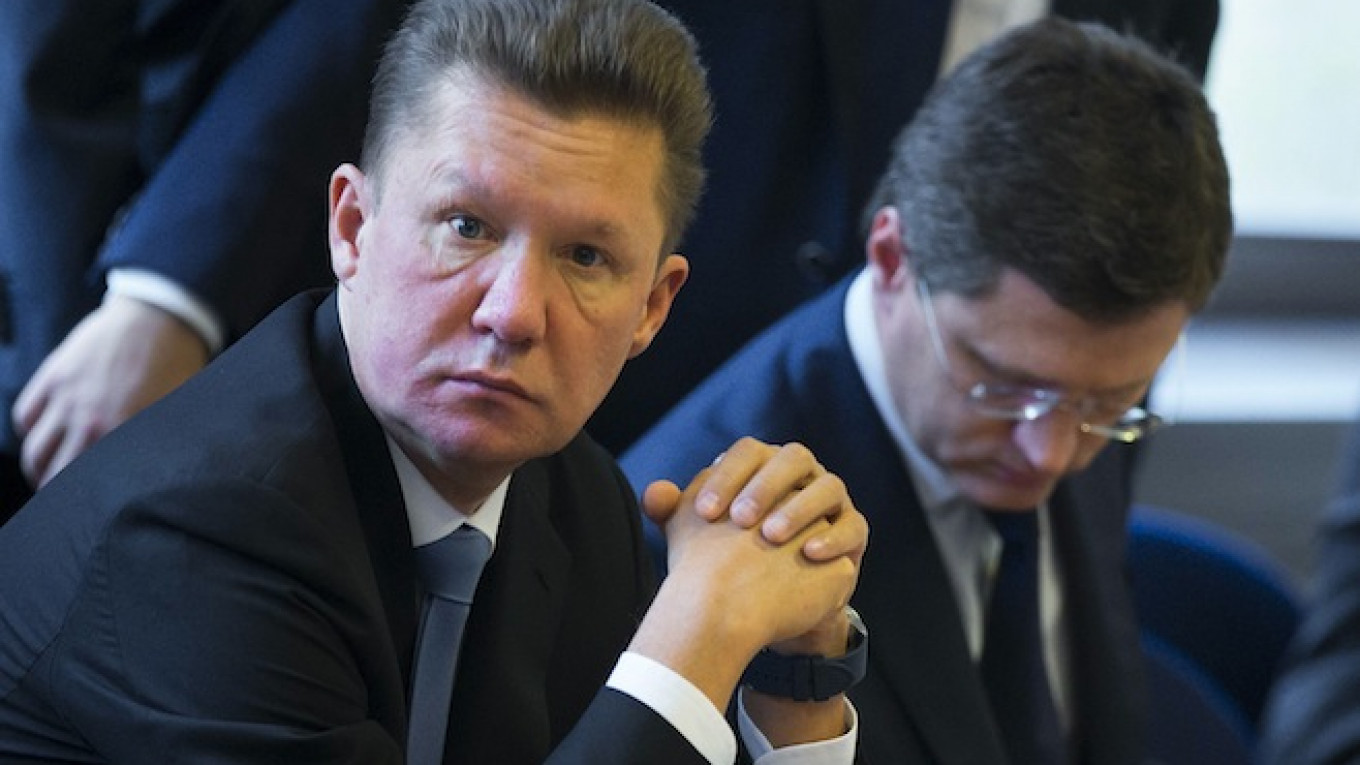BUDAPEST — Hungary has secured increased gas imports from Russia's Gazprom, Prime Minister Viktor Orban said Friday, a day after Hungary's pipeline operator FGSZ stopped shipping gas to Ukraine.
Orban told public radio that he had held talks with Gazprom CEO Alexei Miller and the company had agreed to ship increased volumes of gas to boost levels at Hungary's storage facilities in the coming weeks.
Hungary is aiming to avert supply problems in the event of a potential halt in shipments of Russian gas stemming from the Ukraine crisis.
FGSZ on Thursday announced it had halted gas shipments to Ukraine indefinitely.
The move triggered a protest from Ukraine's Naftogaz, which urged its "Hungarian partners to respect their contractual obligations and EU legislation."
"Naftogaz calls on the EU to ensure a collective solution to the energy security of Europe and the respect of EU internal rules. Neither EU countries nor Ukraine should be put under political pressure through energy blackmail," Naftogaz said in a statement on its website.
European Commission spokeswoman Helen Kearns said: "The message from the commission is very clear: We expect all member states to facilitate reverse flows as agreed by the European Council … There is nothing preventing EU companies to dispose freely of gas they have purchased from Gazprom and this includes selling this gas to customers both within the EU as well as to third countries such as Ukraine."
On Friday the EU aims to propose an interim solution to the gas row between Russia and Ukraine at talks it is brokering in Berlin to avert a winter gas supply crisis.
Timothy Ash, an analyst at Standard Bank, suggested that the Gazprom deal could be part of Moscow's strategy on Ukraine.
"Hungary also suspended reverse gas supplies to Ukraine last night. This comes after Gasonyazprom's CEO, Alexei Miller, met Orban on September 22, and reflects perhaps on Hungary's own 10 billion euro ($12.7 billion) deal for an upgrading of its nuclear power facilities, significantly funded by Russia," Ash said in a note.
Michael LaBelle, an assistant professor at the Central European University in Budapest, said it made sense for Gazprom to store gas in Hungary and the move would also help Hungary in the event that supply is cut off.
"With the crisis in Ukraine they [Russians] need to put it somewhere else and Hungary has the under-utilized capacity and it gets the Hungarian government out of the pickle," he said.
He noted that selling gas already stored in Hungary would currently be unprofitable as it had been purchased at a higher price.
A government spokesman was not immediately available to comment.
Hungary's state-owned energy group MVM last year bought the local gas trading and storage units of Germany's E.ON which gave the government control over gas imports from Russia.
During a gas crisis in January 2009 when Russian gas flows via Ukraine were halted, Hungary had to impose restrictions on some industrial gas users. Since then it has increased storage capacity while annual consumption has declined.
Reliant on Russia
Hungary is heavily reliant on Russian gas. Annual consumption is about 9 billion cubic meters (bcm), with most imported by pipeline from Ukraine. Hungary has domestic annual production of about 1.5 bcm.
The central eastern European country has storage capacity of about 6 bcm. Its storage tanks are currently a little more than 61 percent full, the lowest percentage in the European Union, data from Gas Infrastructure Europe showed.
Orban said Hungary's storage would be boosted in the coming weeks and that, regardless of the severity of the Ukraine crisis, Hungary must avert a situation in which its people do not get the energy they need.
"I had talks with the Russians, the leader of Gazprom, about this, that we will need a large amount of gas in the coming period to increase the stored volumes," he said. "And we will get this large amount."
Orban did not indicate how much additional gas Hungary would receive.
Erste Bank oil and gas sector analyst Tamas Pletser said Hungary had Europe's fourth-largest gas storage facilities and could avert serious supply disruptions even if flows via Ukraine are halted.
Hungary can also import gas via a pipeline from Austria.
A Message from The Moscow Times:
Dear readers,
We are facing unprecedented challenges. Russia's Prosecutor General's Office has designated The Moscow Times as an "undesirable" organization, criminalizing our work and putting our staff at risk of prosecution. This follows our earlier unjust labeling as a "foreign agent."
These actions are direct attempts to silence independent journalism in Russia. The authorities claim our work "discredits the decisions of the Russian leadership." We see things differently: we strive to provide accurate, unbiased reporting on Russia.
We, the journalists of The Moscow Times, refuse to be silenced. But to continue our work, we need your help.
Your support, no matter how small, makes a world of difference. If you can, please support us monthly starting from just $2. It's quick to set up, and every contribution makes a significant impact.
By supporting The Moscow Times, you're defending open, independent journalism in the face of repression. Thank you for standing with us.
Remind me later.






